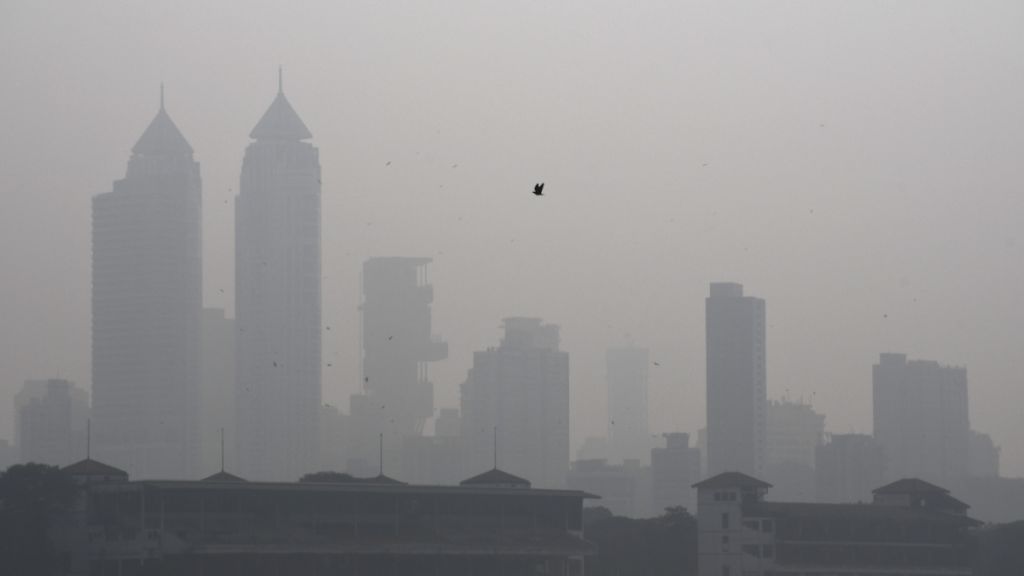
Mumbai: With the falling mercury, dry weather and calmer winds, Mumbai's Air Quality Index (AQI) has been poor since last week. On Tuesday, the capital city’s AQI continues to be under the ‘Poor and Unhealthy’ category.
As per Central Pollution Control Board recordings, as of Tuesday evening, some of the areas with the poorest AQI were Navy Nagar-Colaba (252), Borivali East (232), Dahisar East (213), Kurla (209), Malad West (204) and Mazgaon (203) among others.

On Tuesday, Mumbai’s Santacruz observatory recorded a minimum temperature of 19.5 degrees Celsius and a maximum temperature of 29 degrees Celsius. The maximum temperature in the city on Tuesday was 3.2 degrees Celsius below normal, giving Mumbaikars chills throughout the day. The sky remained hazy and cloudy.
As per the Indian Meteorological Department (IMD) Mumbai forecast, for the next 24 hours, the minimum and maximum temperature in Mumbai will be 20 degrees Celsius and 30 degrees Celsius respectively. The skies will remain hazy and partly cloudy.

Meanwhile, with the mercury dropping in the state, the weather department has issued a warning for rainfall with thunderstorms for several districts, particularly Central Maharashtra, for the next 24 hours. However, there is no rainfall alert in Mumbai and suburbs.
“If there is any rainfall, Mumbai’s AQI will quickly improve. However, there are no signs of any showers in the island city in the coming days. Dry weather, low humidity and calm winds accumulate the dust particles and the dust does not settle down, increasing the pollution levels and decreasing the visibility as well,” IMD Mumbai Director Sunil Kamble said.
The skies in Mumbai continue to be smoggy until the AQI improves. Kamble added that as the authorities resume the construction works post-monsoon, the pollution levels are higher during this season.

Experts have advised that senior citizens, children and citizens with breathing issues should avoid stepping out, especially in the morning.
Meanwhile, considering the deteriorating air quality in Mumbai, the Brihanmumbai Municipal Corporation (BMC) has come into action and released a set of guidelines for immediate measures to tackle air pollution.
The key guidelines include deploying mechanical sweeping machines to clean dust from all roads in Mumbai, water sprinkler installations at construction sites and high-traffic zones to help contain airborne pollution etc.
To ensure compliance, engineers working in the Solid Waste Management department will maintain daily records and submit weekly reports detailing inspections, punitive actions and improvements.